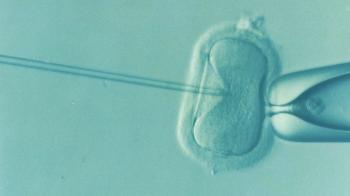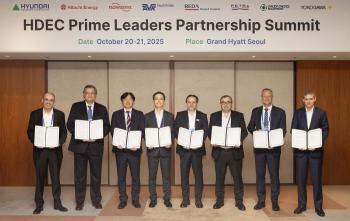Early screening of pre-gastric cancer stage through blood tests...Effective for young and elderly people in endoscopic blind spots
May 28, 2025
|
The national cancer screening system, which supports gastroscopy every two years for adults over the age of 40, is considered to have played a major role in early detection of gastric cancer and improvement of treatment results in Korea today. Recently, however, the number of young gastric cancer patients under the age of 40 is increasing, and in the elderly over the age of 70, more and more patients have difficulty undergoing regular gastroscopy due to physical burden, exposing gaps.
Since the absolute incidence rate is low to uniformly expand the scope of the test to young people, the actual benefit for the cost is insignificant, and it is recommended to conduct a limited gastroscopy according to health conditions from the age of 75 or older, simply expanding the test on them cannot be the solution. This is why a screening strategy is needed to screen only high-risk gastric cancer patients who need to be tested.
Professor Kim Na-young's team wanted to find this clue in the blood test-based 'serum pepsinogen kit (Gastropanel)'. Gastric cancer usually occurs through a process in which the gastric mucosa is gradually damaged and changed over a long period of time, and one of the representative signs in this process is 'atrophic gastritis'. The research team conducted a study to identify high-risk groups of gastric cancer using serum pepsinogen levels that indirectly show the degree of atrophic gastritis and serum pepsinogen kits that simultaneously test for Helicobacter pylori infection.
As a result of analyzing the data of 2,200 patients who underwent gastroscopy and blood tests at Seoul National University Bundang Hospital, it was confirmed that the risk of gastric cancer and gastric cancer, which are the pre-cancerous stages, was significantly higher when the level of pepsinogen I divided into pepsinogen II (pepsinogen I/II ratio) was lowered to 5.3 or less.
In particular, among patients with a pepsinogen I/II ratio of 5.3 or less, if Helicobacter pylori infection is negative, the risk of developing gastric adenoma is 3.36 times higher than that of the general population, and gastric cancer is 2.25 times higher, which can be used as an important warning signal.
It should be noted that the negative of Helicobacter bacteria is not a positive factor, but a dangerous state in which atrophic gastritis or intestinal metaplasia has progressed significantly, which takes advantage of the phenomenon that Helicobacter bacteria initially cause damage to the gastric mucosa and then die out on their own if it progresses severely.
This study is meaningful as a result of demonstrating the possibility of a combined interpretation of serum pepsinogen testing and Helicobacter infection as a new tool for early gastric cancer screening. Professor Kim's team recently announced a study that a combination of Pepsinogen II and Helicobacter infections can identify high-risk groups for diffuse gastric cancer in young women, and if these studies are combined, they are expected to contribute greatly to supplementing gaps in the national screening system and designing personalized screening strategies using blood tests.
Professor Kim Na-young said, `It is easy to miss the opportunity to detect gastric cancer early in the case of the elderly who have difficulty in regular endoscopic examinations or young people who have not yet been included in the national examination"The results of this study are clinical evidence that shows that blood test-based screening strategies can be a practical alternative for these blind spot patients."
Meanwhile, the results of the study were recently published online in the international journal 'Gut and River, an international academic journal in the field of gastroenterology.
|
This article was translated by Naver AI translator.















